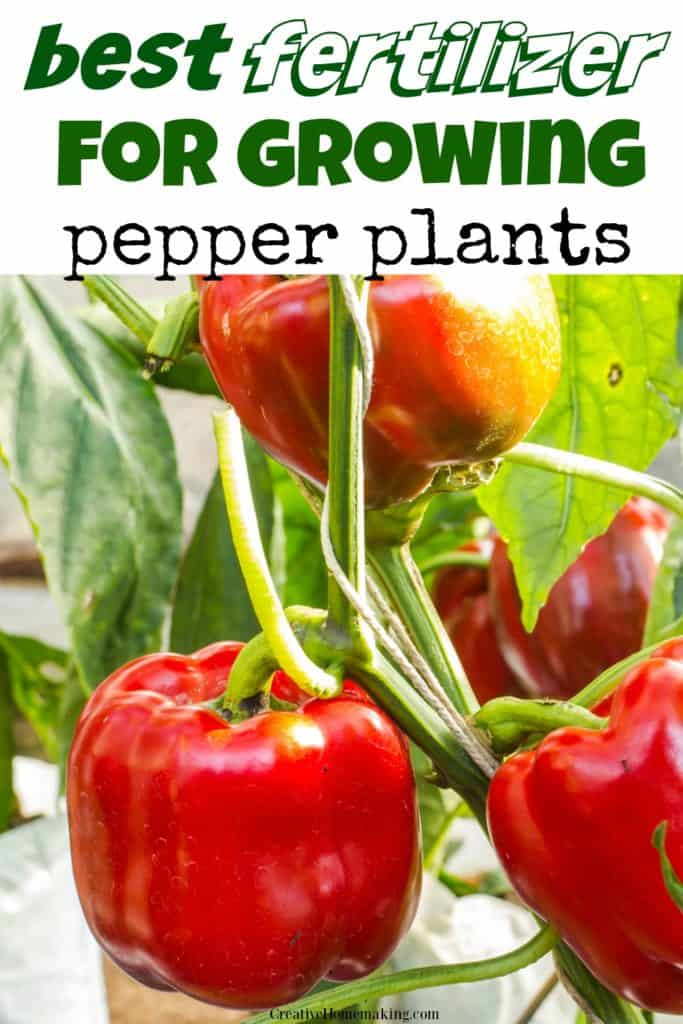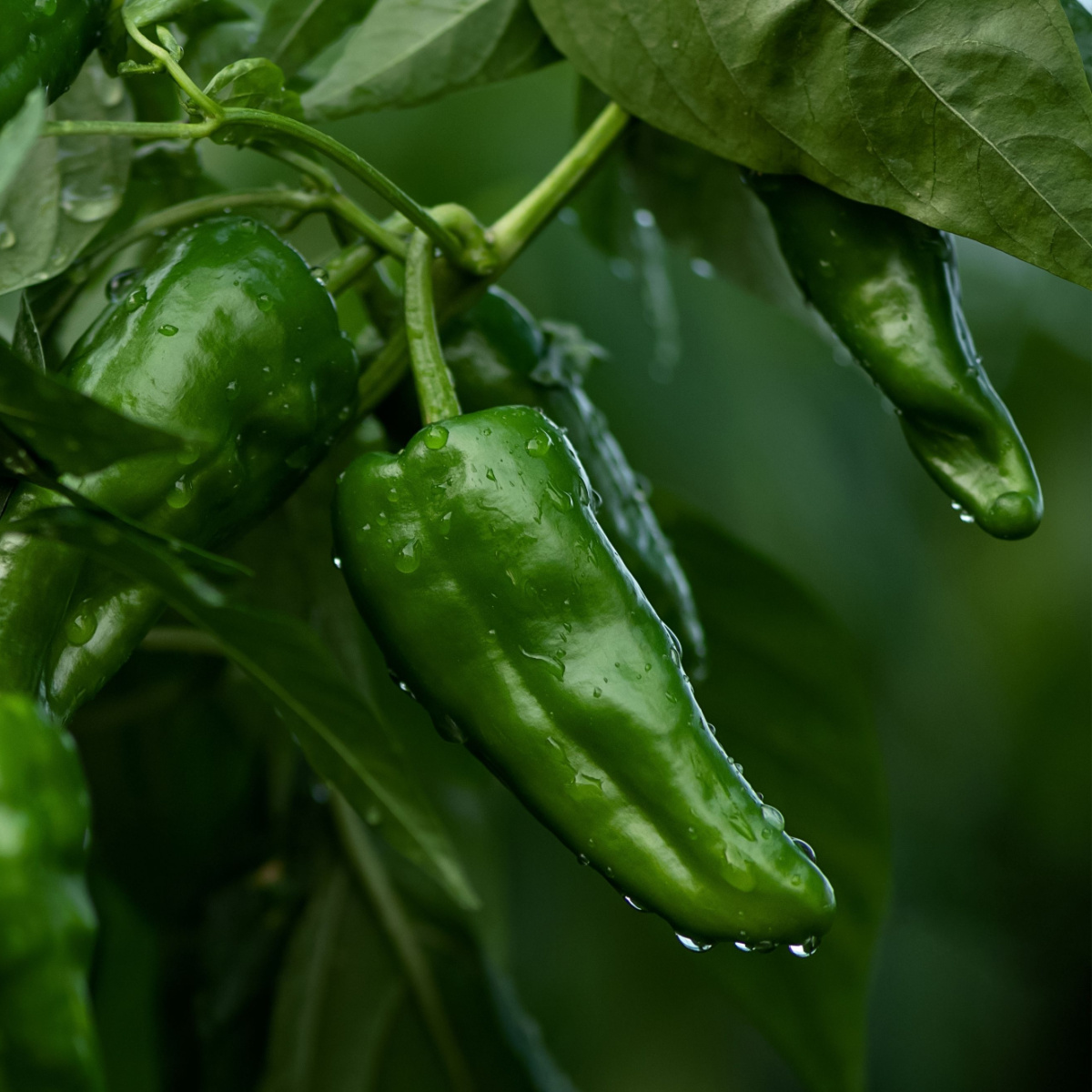Best Fertilizers for Peppers: Improve Development and Flavor with Our Top Picks
Best Fertilizers for Peppers: Improve Development and Flavor with Our Top Picks
Blog Article
Exactly How Plant Foods Play a Crucial Role in Growing Healthy And Balanced and Plentiful Pepper Crops
Fertilizers work as the backbone of effective pepper cultivation, providing a strategic method to nurturing the soil and fostering optimum plant growth. The intricate dancing between vital nutrients and the pepper plants' physiological procedures underscores the critical function that fertilizers play in making sure a plentiful harvest. From fueling robust root growth to bolstering illness resistance, the impact of fertilizers is significant in the growing of healthy and productive pepper crops. Stay tuned to discover the nuanced methods in which fertilizers add to the thriving of pepper plants and the lasting techniques that underpin their efficiency.
Relevance of Nutrient-Rich Plant Foods
The use of nutrient-rich fertilizers plays a critical function in enhancing the productivity and quality of pepper crops in modern-day agricultural practices. Nitrogen, potassium, and phosphorus are main nutrients that are crucial for the growth and growth of pepper plants.
Insufficient degrees of these nutrients can bring about stunted growth, reduced returns, and vulnerability to diseases (best fertilizers for peppers). Nutrient-rich plant foods provide a targeted option to guarantee that pepper plants get the required elements for optimal growth and productivity. Additionally, these plant foods help boost dirt fertility with time, developing a lasting setting for lasting pepper cultivation
Enhancing Plant Development and Advancement
To maximize plant development and development in pepper crops, strategic application of nutrient-rich plant foods is important. Plant foods play an important duty in boosting the overall health and wellness and efficiency of pepper plants by supplying them with essential nutrients that may be lacking in the dirt.
Along with these macronutrients, trace elements such as zinc, magnesium, and iron are additionally crucial for the proper functioning of different plant processes. Iron, for example, is necessary for chlorophyll manufacturing, which is crucial for photosynthesis and general plant growth. Zinc plays an essential duty in enzyme activity and hormone synthesis, influencing plant growth and growth at a cellular degree. Magnesium is essential for the development of chlorophyll and general energy transfer within the plant.

Boosting Disease Resistance With Plant Foods
By tactically including targeted fertilizers, farmers can bolster the disease resistance of pepper plants, guaranteeing ideal plant health and efficiency. Plant foods containing vital nutrients like phosphorus, potassium, and nitrogen play an important duty in reinforcing pepper plants' body immune systems, making them much more resilient to various illness. Nitrogen, for circumstances, aids in the production of healthy proteins that are important for plant defense reaction. Phosphorus adds to root advancement, making it possible for plants to much better take in nutrients and water, hence enhancing their capability to repel illness. Potassium controls processes that improve overall plant wellness, making peppers more robust versus pathogens.

Taking Full Advantage Of Pepper Yield Via Fertilization
Making use advice of a well balanced fertilization method is crucial to accomplishing optimum pepper yield and ensuring optimum crop productivity. By giving peppers with the appropriate nutrients at the correct time, farmers can significantly boost their return possibility. Nitrogen, potassium, and phosphorus are essential components for pepper growth, with nitrogen assisting in fallen leave and stem advancement, phosphorus sustaining origin growth and flower development, and potassium advertising overall plant health and wellness.
To make best use of pepper yield, it is vital to conduct soil tests to determine existing nutrition degrees and identify any kind of shortages that need to be dealt with. Based on these results, farmers can develop a tailored fertilization strategy that satisfies the specific needs of their pepper plants. In addition, proper fertilizing methods such as split applications throughout the expanding period can make certain continual nutrient availability for the plants.

Sustainable Fertilizer Practices for Peppers
In considering lasting fertilizer methods for peppers, it is imperative to focus on long-term soil health and environmental stewardship in combination with maximizing plant efficiency. One key technique is the use of natural fertilizers such as garden compost, manure, or cover crops, navigate to this website which not only provide vital nutrients to the peppers but likewise contribute to soil structure and microbial activity. best fertilizers for peppers.
In addition, accuracy agriculture techniques, such as dirt screening and targeted nutrient applications, can aid enhance fertilizer use, making sure that peppers obtain the nutrients they require without excess drainage right into rivers. This not just benefits the setting by minimizing air pollution but likewise saves expenses for farmers by lessening waste. By taking on lasting fertilizer techniques, pepper farmers can protect the health and wellness of their crops, dirt, and surrounding communities for future generations.
Final Thought
In verdict, plant foods are important for cultivating plentiful and healthy pepper crops. best fertilizers for peppers. They offer essential nutrients for plant development and growth, boost disease resistance, and maximize return. By carrying out lasting fertilizer methods, farmers can guarantee the lasting health of their pepper crops and add to an extra environmentally-friendly and efficient farming system
The complex dance between crucial nutrients and the pepper plants' physiological processes emphasizes the pivotal function that plant foods play in guaranteeing a bountiful harvest.To enhance plant development and advancement in pepper crops, tactical application of nutrient-rich fertilizers is vital. Fertilizers play a vital duty in enhancing the overall health and efficiency of pepper plants by giving them with necessary nutrients that might be lacking in the soil.By purposefully including targeted plant foods, farmers can reinforce the disease resistance of pepper plants, guaranteeing optimum plant health and performance. Plant foods consisting of vital nutrients like nitrogen, phosphorus, and potassium play an essential role in reinforcing pepper plants' immune systems, making them a lot more resistant to different illness.
Report this page